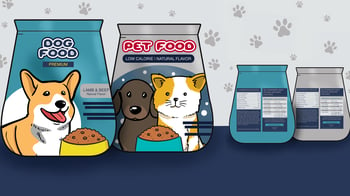In 2018, veterinary cardiologists began to observe and report an increased incidence of dilated cardiomyopathy (DCM) in breeds not normally predisposed to that condition.
On July 12, 2018, the US Food and Drug Administration (FDA) issued a press release stating that they were formally investigating a connection between “pet foods containing peas, lentils, other legume seeds, or potatoes as main ingredients” and dilated cardiomyopathy DCM in dogs.1






